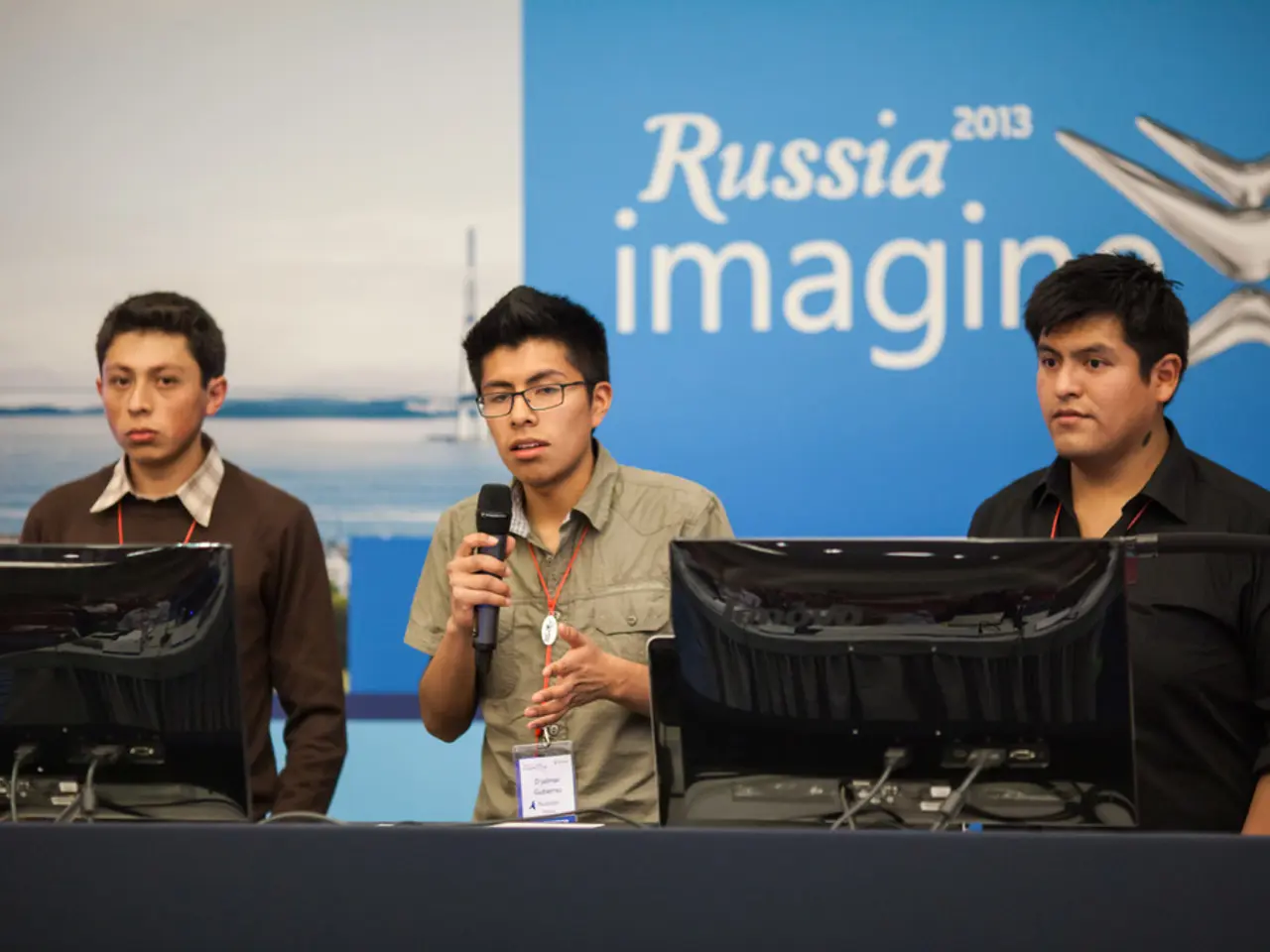Russia imposes limitations on calls through WhatsApp and Telegram, a new measure to regulate internet usage.
In a move aimed at combating criminal activities, Russia's internet regulator, Roskomnadzor, has imposed partial restrictions on voice calls through WhatsApp and Telegram [1][3]. The restrictions have resulted in throttled or unusable calls on these platforms.
According to reports, WhatsApp calls have mostly been blocked, while Telegram calls have been severely degraded in quality [2][3]. The official justification given by Russian authorities is based on information from law enforcement agencies claiming that these foreign messaging services facilitate criminal activities, including fraud and terrorist acts [1][3].
However, some skepticism surrounds this rationale since Russia's Central Bank data shows that traditional phone calls are the primary vector for fraud, which complicates the official narrative [3].
This move is part of a broader government effort to control online communication and push Russian users towards a newly launched government-approved "super app" called Max. Modeled partly on the Chinese app WeChat, Max offers messaging, online government services, and payment options [1][2]. The authorities aim to ensure greater surveillance and control over digital messaging through this app.
Russia cannot completely block these platforms at once due to potential economic disruption and public backlash [1]. The restrictions vary by region and carrier, and some users circumvent them using Virtual Private Networks (VPNs) [4].
Lawmaker Anton Gorelkin stated that WhatsApp "should prepare to leave the Russian market," and Max is being promoted as a replacement [2]. No immediate comment was given by either Telegram or WhatsApp regarding the restriction [3]. WhatsApp's spokesperson stated that the encrypted messaging app defies government attempts to violate people's right to secure communication [3].
As of now, access to other functions of the apps remains unchanged [3]. According to Mediascope, WhatsApp had over 96 million monthly users in Russia in July, making it the most popular platform, with Telegram following closely with over 89 million users [5]. MAX, despite being promoted as a replacement, has yet to attract a wide following, with over 2 million people registered for beta tests as reported by Tass news agency [5].
This development reflects Russia's increasing internet censorship and digital sovereignty push following geopolitical tensions since 2022 [1][2][4].
| Aspect | Details | |-----------------------------|------------------------------------------------------------------------------------------------| | Restrictions | Partial blocking/throttling of WhatsApp and Telegram voice calls | | Reason | Claimed combat against criminal and terrorist activities; refusal of cooperation by platforms | | Impact | WhatsApp calls mostly unusable; Telegram calls barely functional | | Official stance | Measures based on law enforcement materials to fight crime; no full app blockage yet | | Broader context | Part of a push to direct users to a government-approved "super app" for increased control | | User adaptation | Some use VPNs; restrictions vary by region and carrier |
- The ongoing issue in Russia's internet landscape includes a partial block on voice calls through WhatsApp and Telegram, which has led to either throttled or unusable call quality on these platforms.
- This move by the Russian government is part of a broader effort to control online communication, pushing users towards a new government-approved "super app" named Max, which resembles the Chinese app WeChat in features.
- Despite the restrictions, traditional phone calls have been identified as the primary vector for fraud in Russia, according to Central Bank data, which complicates the official narrative.
- In the realm of Seattle's vibrant technology business and real estate sector, the developments in Russia could potentially impact cybersecurity, given the increased push for digital sovereignty and internet censorship.
- The recent political tension and geopolitical conflicts since 2022 seem to have driven Russia's push for internet censorship and digital sovereignty, notably reflected in the clampdown on foreign messaging services like WhatsApp and Telegram.




